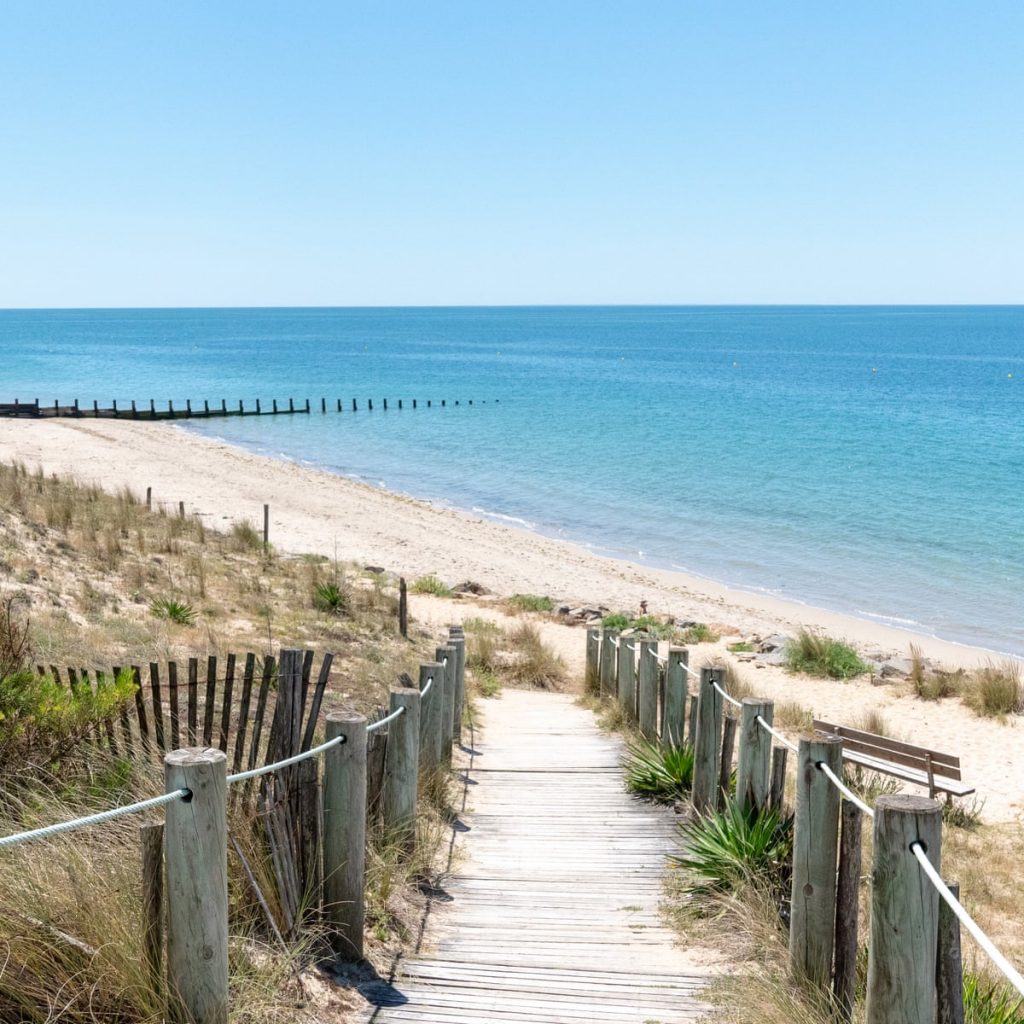If you’re planning to study this book as part of a readers’ group guide, here are a few extra resources and questions to help you get started. (Note: questions can contain spoilers, so please read the book first if you want to avoid them!)
The story is set on a fictional French island just off the coast of Noirmoutier. Read my article about the region here.
Read more about tourism on Noirmoutier here.
Stealing a beach seems at first glance to be an impossible idea. Read more about the science of tidal engineering here.
Various incarnations of Sainte Mari(n)e-de-la-mer remain an important presence along the French coast. Find out more here.
When this book was written, the disappearance of sandy beaches was not as well-known phenomenon as it is now. Read more about what puts beaches at risk here.
Want to try some local food? Try these typical Breton galettes…
Or that perennial favourite, moules mariniere!
Or if you’re after something sweet, this typical Breton kouign amann is a perfect indulgence…
Questions for group discussion:
- Mado is not the only young person who seems desperate to leave this seemingly idyllic island. Why?
- Mado’s relationship with her father is complicated and distant. Why do you think this happened? How does her return to the island affect him?
- Mado’s nostalgia for her childhood home is tempered by her desire not to get involved in local issues. What draws her in? How?
- Mado’s father seldom speaks. Why? And why do you think the author chose to write his character this way?
- The island has its own way of doing things. In what way do you think this book is about the division between urban and regional France?
- The locals on the island seem to fall into two camps; those who welcome and bring about change, and those who oppose it. In what way is this a story about the cost of change?
- Religion and superstition are almost the same thing on Le Devin. What is the importance of Sainte-Marine, and what role does she play in everyday life?
- Mado is drawn to Flynn almost immediately. Why? And how does his ultimate betrayal affect her choices and decisions?
- Tourism allows the islanders to live, and yet it threatens their way of life. Is this necessarily the case? Are there ways to enable both to thrive? Or are communites like this automatically doomed to vanish?
- King Canute famously (if apocryphally) tried and failed to hold back the tide. Bearing this in mind, in what way would you say that this story is about the inevitable march of progress?
- In what sense could you describe this book as a romantic comedy? In what way does the author use this as a means of expressing ideas about: Family? Gender? Religion? Consumerism? Greed? Innocence? Communication?
- Place is very important in this book. How does the author establish the sense of place in this story?
- The sea and the tides are a very important presence in this book. How does the author convey this? In what way does this make the islanders different to people from the mainland?
- Certain families have special status on the island. Which ones? How do they hang onto it? How does this affect the community as a whole?
- Some islanders dream of a life in the city. In the same way, stressed and burnt-out people from the city dream of a life on the island. Why? In what way do you think their dreams are realistic? Do you think we always tend to exoticize those things that are less familiar to us?

